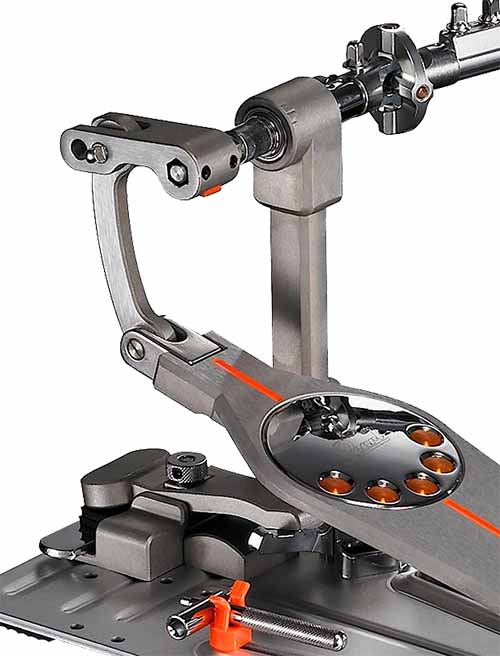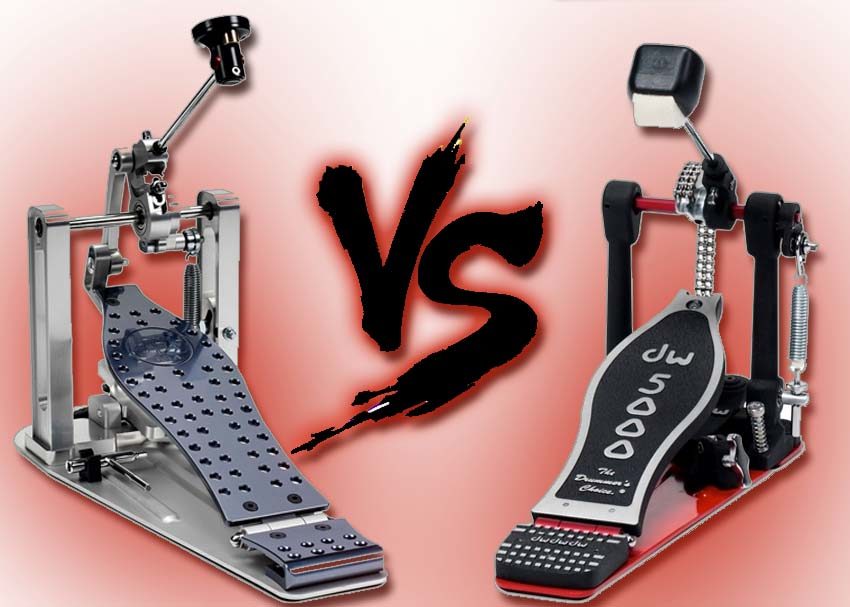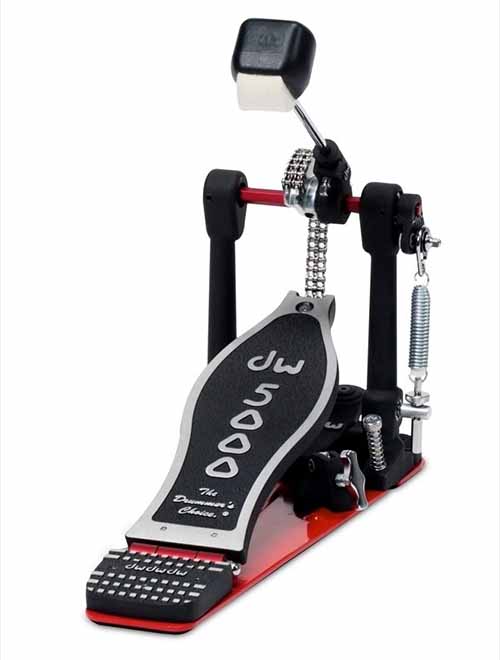In the world of professional drumming, “feel” is almost always the most important aspect of picking components and hardware for a drum kit. This is why online forums are set on fire when the discussion of direct-drive vs. chain-drive bass drum pedals comes up. Those who love chain-drive for its “solid and real feel” argue that it’s how drumming is supposed to feel. Meanwhile direct-drive proponents vow that the difference is night and day, and that direct-drive is useful for drummers with more “finesse” and who value speed. There really isn’t a correct answer, since the gear you like is totally subjective, but it is a fact that there are significant differences between both types. With the drum world at an impasse, here’s what the differences really are between direct-drive and chain-drive bass drum pedals.
Chain-drive
Single and double chain-drive bass drum pedals are the most prevalent in the industry, mostly because they cost less. They are named single and double because they either operate with a single chain or two (double) chains connecting your footboard to the beater. You can probably guess that a drive system being pulled by a chain could lead to a bit of footboard lag because of a chain’s many separate points of contact. This is absolutely true, and is why direct-drive is hailed as a “speedy alternative” since there are only 2 points of contact.
Double chain pedals are typically viewed as more durable, and offer more footboard stability with less “side to side” friction. While single chains are a bit quicker, they lack stability and durability under high-usage. Single chain pedals also tend to cost less; this can lead to the perception that they are a lesser model, but this is false. The price difference is typically due to manufacturing costs, not the model’s toolset itself. Since it has fewer points of contact (friction) the single chain pedal is often used when more speed is needed and a drummer wants the “chain-feel.”
Direct-drive
Many drummers think that direct-drive bass drum pedals are a recent invention to keep up with modern music’s need for consistent and quick bass drum strikes. But in truth, the direct-drive system came first. Originally invented in the 1800s for orchestra players that needed to play more than just one drum at a time, the direct-drive drum pedal (in its most prehistoric form) was used for a new (at the time) drumming style called “double-drumming.”

A direct-drive bridge with 2 points of contact between the footboard and double bass pedal attachment on the Pearl P-3002D Eliminator Demon Drive double bass drum pedal.
With modern advancements in manufacturing and materials, today’s direct-drive bass drum pedal offers an incredibly fast strike due to its two points of contact: one at the footboard and one at the beater shaft. This solid bridge between footboard and beater gives the player increased control and a consistent strike that cannot be achieved with a chain-drive. Many drummers in genres that value double bass at high speeds, like metal, love the direct-drive as a heel-down player can get a consistent, fast strike every time their foot goes down.
So What’s Better?
Though each and every drummer you speak with will have a differing opinion, it’s important to know that the “better” option is always the one that feels best to you. Sure, direct-drive pedals fit well in metal, but plenty of metal players use chain-drives as well. It all comes down to trying out a pedal, making adjustments, and then getting the feel down. That’s it — no magic product to make you better at drums, just raw, organic, old-fashioned feel. That is truly what’s better.





Leave a Reply